 II: Follow the Yellow Silk Road: We’re off to see the Wizard
II: Follow the Yellow Silk Road: We’re off to see the Wizard
It’s hard to imagine the mindset of young Marco. Here he was, a boy of only seventeen, having grown up without a mother (I don’t know when she died, as it doesn’t make that clear, but I get the impression it may have been soon after his birth) or father, living in one of the busiest and most fascinating trading ports of Italy, on his way from a country he had never left in his life to a country he had only heard of from the father and uncle whom he had only known for two years now, helping them fulfil a contract given them by a shadowy figure of power who resided in the east. It must have been something of a shock for him. You get the impression, too, from Niccolo that Marco’s father would not have been the type to have sat his son down and explained to him what was happening, what the significance of their trip was, nor, likely, that he was probably going to be much older before he saw home again. I mean, I doubt Marco was playing footie in the street when his dad shouted “Eh Marco! We going to see the Khan!” or whatever, but at the same time I can’t see him having prepared his son for the voyage.
At least this time they had the passport of guarantee that Kublai Khan had given them to smooth their way, so they had no need to fear being attacked or robbed, and in 1271, only two years after returning home, having been away for sixteen, they were off again. This time, though, they were three. Arriving back at Acre they sought out Teobaldo, and asked for permission to travel to Jerusalem, there to bargain for the fabled oil from the Holy Sepulchre, said to be the site of the burial of Jesus Christ. Kublai Khan had requested this as part of the mission he had given the Polos, and Teobaldo agreed this was cool, so off they went. If arriving in Acre had made an impression on the young Marco, imagine what the effect must have been on him to be in the actual city wherein Christ had preached, been crucified and risen from the dead.

The Polos got their oil and returned to Acre, no doubt frustrated that the cardinals still hadn’t come to an agreement on who would lead them. I’m sure they must have thought something along the lines of “For fu
ck’s sake, just make up your minds, you old farts! We have a really long journey ahead of us, and all this delay is doing my head in!” As it would anyone. Today, we wait maybe days, weeks for a new pope. Imagine waiting years! I suppose the question arises, who takes care of the flock while the cardinals try to elect a new shepherd? Who keeps the wolves away? Well, not in this era of course; nobody gives a curse in reality. But back then, it must have seemed like being led down a dark road when suddenly your light goes out.
The Polos, though, had had it up to here with squabbling cardinals, and said f
uck them all, we’re going. And they did. Without any real official - and certainly no papal blessing, they turned towards the next, and much longer leg of their journey. Perhaps they asked Teobaldo to text them when the cardinals finally agreed and a new pope was chosen, though probably not. They did, however, have the good sense to obtain official documents from the legate explaining the situation, along with a promise that he would inform the Polos as soon as there was a new arse in the Vatican, though quite how he intended to do that, given that communication was so slow, I’m not sure. Either way, both parties were satisfied, and Teobaldo probably imagined his role in potentially securing good relations with the Khan might do no harm to his CV later.
But just when everything seems it’s going to plan, things can fall apart faster than a government coalition, and as they prepared to leave, word came to the Polos that one of the other Khans had led an uprising and travel was not safe. As a sort of ironical postscript, as they waited to depart the news came to them that the white smoke was finally pluming from the chimney of the Vatican, and lo and behold! The new pope was none other than Teobaldo himself! Ain’t that just a turn-up for the books, they almost certainly did not say, but now they had a real ally in the papacy, none other than the god-damn Pope himself. This surely took some of the sting out of their enforced delay as they waited to depart, though they might have been somewhat pissed to be further delayed as the new pope called them to Acre. Still, it was worth it, as he blessed their enterprise (no doubt tearing up those documents he had given them about the impasse after Clement IV’s death) and gave them two friars to accompany them, men who could speak with his voice and who had full power to ordain bishops, forgive sins, and give a tiny crucifix away with every new conversion. Okay, maybe not the last, but you get the idea. The Polos now had essentially the full approval, blessing and even might of the Christian Church behind them, and things could not have been hunky-dorier.
And then it all went tits-up again.
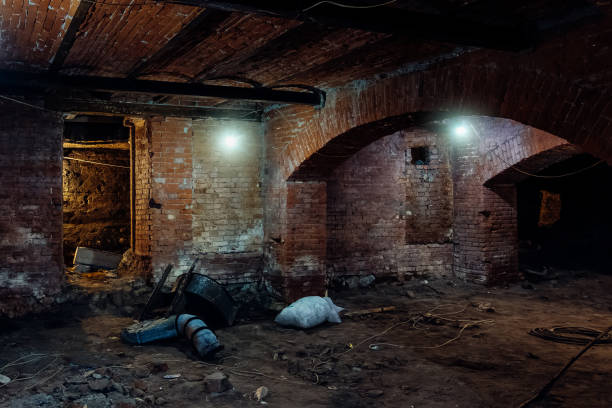
For whatever reason, a local sultan in Armenia took offence to the Polos and threatened to imprison them. Quite why the Khan’s letter of protection didn’t work here I don’t know: maybe this guy thought about interesting and inventive places the Khan could stick his guarantee, he being so far away and all, or maybe he just didn’t feel threatened by him. At any rate, the two friars, being stout and hardy Christians ready to endure all torments and hardships in the name of their faith, promptly s
hit themselves at the prospect of prison and told Niccolo, Marco and Maffeo that they had just remembered they had really, really urgent prayers to say that just had to be said in the presence of the Pope, love to continue with you, facing all those dangers, suffering incarceration and all that good stuff, but God needs us, you know how it is, say hi to the heathen Mongol bastard for us, and off they fu
cked back to Acre, leaving the Polos to shug and think, “Fu
cking pussies” or words to that effect, and continue on alone.
Six months after being - finally - elected as pope, Teobaldo of Piacenza formally took the title of Pope Gregory X, and is recorded as saying, on witnessing the return of his two friars, “what the fu
ck are you two doing back here? Didn’t I make myself clear when I sent you with those Polos?”
Marco, meanwhile, was beginning to form his own impressions of other races as the trio crossed into Turkey. He was not impressed. He had, likely, never seen, or at least been in the land of a Muslim before, and he found their practices abhorrent, calling their religion a “brutish law” (I would imagine he might have been referring to Sharia law, though I don’t know); certainly, to a boy raised as a Christian, this new religion would certainly seem offensive, and by definition then, wrong. In this he was expressing the usual opinion of high-minded Europeans who believed themselves superior to these “savages”. Marco Polo was getting, or at least indulging in, his first real dose of racism.
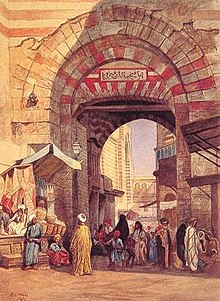
He managed to overcome this in favour of that most beloved pastime of Venetians, trade, as he marvelled at the splendid carpets for sale, but the attitude of the Mongols towards worship baffled him. The Khan did not enforce any sort of religion; like, perhaps, Queen Elizabeth I at least in the beginning, his was a reign of religious tolerance, or perhaps it might be more accurate to say one of religious indifference. Despite his desire to learn about Christianity, it doesn’t seem that Kublai Khan was about to convert any time soon. His people owed their first allegiance to him, and after that, well, they could believe whatever they liked, he didn’t care. It was all about knowledge with him, and while yes, knowledge is power, it looks as if he really just did want to know all he could.
Marco found the Mongols’ attitude towards Christianity odd. In Europe, at that time, everyone was a Christian. It just wasn’t challenged. This was evident in the variety of countries, states and kingdoms who joined the various Crusades. Foreigners - those outside of Europe, like in the Middle East or Africa or Asia - were the heathen, and did not believe in Christ. But here some of the Mongols did, but only as another god to be included in an already-crowded pantheon, and a surly, selfish one at that. He said “They confess…that Christ is Lord, but they say he is a proud Lord because he will not be with other gods but will be God above all others in the world. And so in some places they have a Christ of gold or silver and keep him hidden in some chest, and say that he is the great Lord supreme of the Christians.”
In other words, this Christian god, this Christ, won’t play with the other gods. He is known to be aloof and proud, haughty and believes himself to be a cut above the other gods. Would perhaps benefit from some intermingling and removal of the stick which is no doubt rammed up his arse. Or words to that effect. Marco spent time looking for the Ark in the region of Mount Ararat, but though he thought he may have glimpsed it (more than likely a frozen lake) he could not get to it and had to give up. He had his first experience of a desert bazaar when the company reached Mosul, in Iraq, where some passing heretics tried to convince him that Jesus was two beings, not one, but he had already had enough of the other gods putting his down, and told the Nestorians to be on their way before he gave them a kick up the arse. By now, he may very well have been pining for strictly-Christian-and-don’t-you-dare-worship-anyone-else Venice, but their journey was only beginning.
It’s of interest to me to note the difference in attitudes between the two generations. Niccolo and Maffeo, heading out for the second time, and even with a letter from the Pope, seemed not to be too bothered about all the, shall we say, paganism or heretical worship going on, whereas Marco, on his first trip outside Italy - outside Venice, probably - seems much more shocked and even insulted by what he sees as heathens taking the piss out of his Saviour. I suppose this is understandable; not only was Marco a callow youth of seventeen at this stage, a guy who had seen nothing of the world, but he had been brought up in a strict Christian country (state) where there simply was no religious diversity. I mean, we’re talking Italy here, one of the three or four most devoutly Christian, and later Catholic countries in Europe, if not the world, at this time. In many ways, Marco might have seen himself almost as a young monk leaving the monastery for the first time, and realising just how evil (and exciting) the world outside his cell was.

To his credit, like his father and uncle, and most if not all Venetians though, Marco Polo would soon settle down into the realisation that not everyone was like him and his countrymen, and would instead embrace the diversity of the world, and with a Venetian’s eye for trade, concentrate on commerce while perhaps putting his doubts and personal feelings about those who held beliefs other than his to one side. The valuable turquoise in the mountains of Persia (Iran) attracted his eye, as did the weapons and armour fashioned by the country’s craftsmen, and he became very enamoured of falconry, something he would end up being very involved in during his travels.
One thing that did not impress the Mediterranean boy was the cold, as he wrote about a particular escarpment in Kerman, in Persia. “Between the city of Kerman and this escarpment the cold winter is so intense that it can scarcely be warded off by any number of garments and furs.” He also shivered at the thought of the Karaunas, marauding bands who, he says, had the power to work “a diabolic enchantment that turned day into night over a distance as far as a man could ride during the space of seven days.” There’s no elaboration on this supposed power, so I can’t say what he was referring to. Odd, but it seemed to frighten him. Having evaded them several times, though some of his band were taken captive and either enslaved or killed (I assume whatever caravan they were travelling with, as, other than his father and uncle, there was nobody else in his actual party) they came to the Persian port of Hormuz.
Here the Polos intended to take ship to India, and thence on to China. Here the wind coming in from the desert could turn “so overpoweringly hot that it would be deadly if it did not happen that, as soon as men are aware of its approach, they plunge neck-deep into the water and so escape from the heat.” He relates in his writings that a company of six thousand soldiers had died, having been surprised by the deadly hot wind. The bodies were so dried out by the wind that they could not be removed for burial, as they began to come apart, and had to be interred where they had fallen in the desert.
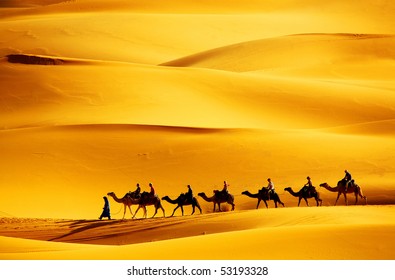
Marco was not impressed with the quality of the ships at Hormuz. “Their ships are very bad, and many of them founder, because they are not fastened with iron nails but stitched together with thread made of coconut husks,” he complained, and went on to say ““The ships have one mast, one sail, and one rudder, and are not decked; when they have loaded them, they cover the cargo with skins, and on top of these they put the horses that they ship to India for sale.” Coming from a city where shipbuilding was a proud tradition, this must have dismayed the young would-be explorer, to say nothing of the worry it would have engendered in him for their safety crossing to India. He prophesied gloomily “you can take my word that many of them sink, because the Indian Ocean is very stormy.” No doubt he hoped that the patron saint of Venice, Saint Mark, would protect them and ensure their ship was not one of the ones that foundered.
In point of fact, Niccolo and Maffeo had decided that the fears of the young boy were not unfounded, and they cancelled their voyage to India, instead returning to Kerman and booking passage with a caravan crossing the desert. It might be hot, slower and less comfortable, but it was in the end safer. Marco was not without his doubts though: “a desert of sixty miles in which water to drink is sometimes not found,” he ruminated as the camels moved slowly and unhurriedly off into the white-hot dunes. His fears were soon realised, and it seemed, if you’ll forgive the pun, they were in for a s
hitty time, as he moaned about the undrinkable water: “Drink one drop of it and you void your bowels ten times over. It is the same with the salt that is made from it. If you eat one little granule, it produces violent diarrhea.”
After days riding in heat, thirst and discomfort through the desert, Marco’s relief is palpable in his writings when they come to their first oasis. “A town beautiful and great and fertile and of great plenty of all things needful for life.” Given how tough the crossing had been on them, you can’t help thinking that he would have considered anywhere beautiful and fertile, from Manchester to the Bronx. Just to get down off those bumping, bouncing, rolling camel humps must have felt like Heaven to the travellers. Also heaven, at least to Marco, were the nubile Muslim women, whom his teenaged and burgeoning libido most certainly noticed. He also told tales of the Assassins, a secretive order of killers who prepared themselves for missions by smoking hashish - hence their name - and who were feared even back in England, where the young Prince Edward had almost fallen prey to their attacks, surviving his wounds to return home and be crowned King Edward I.
In reality, as those who partake know no doubt, the worst thing you could take before heading out on a mission of murder is hashish, hash, cannabis or marijuana, call it what you will - weed even, which relaxes the senses and certainly does not sharpen them. You might as well take valium. Far better for assassins would have been cocaine or PCP maybe, but the legend - if it is a legend - stuck, and so we have the word today for hired killers.



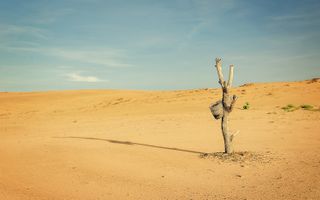
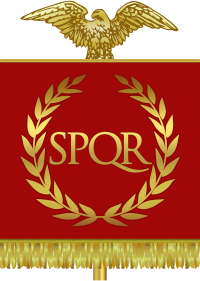







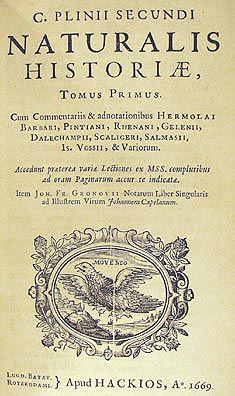




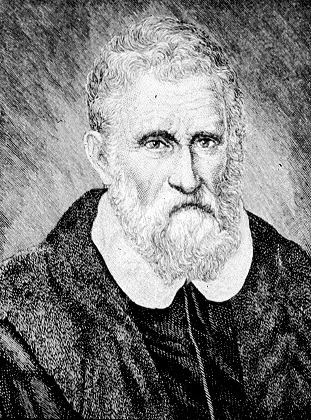











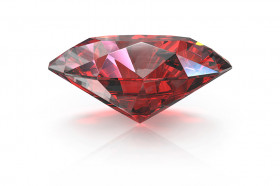





 Linear Mode
Linear Mode
